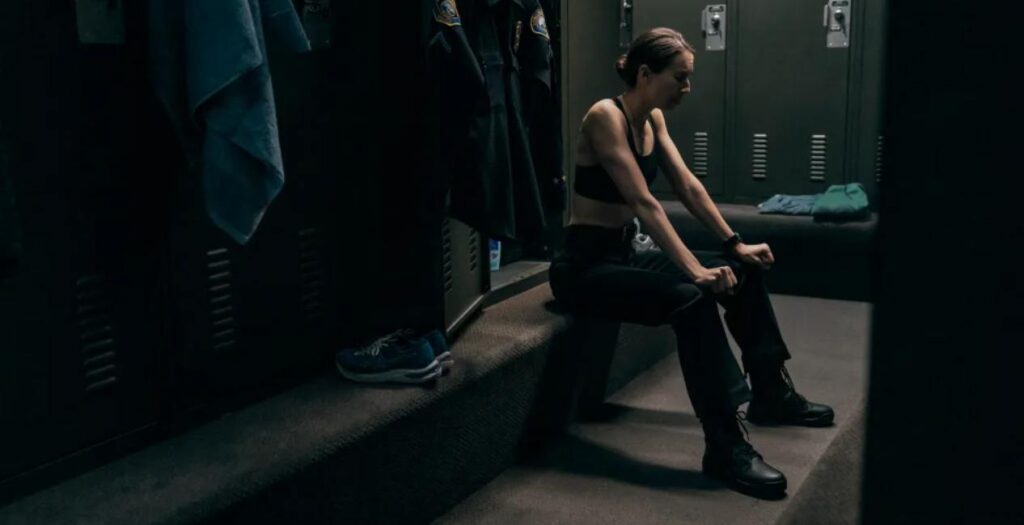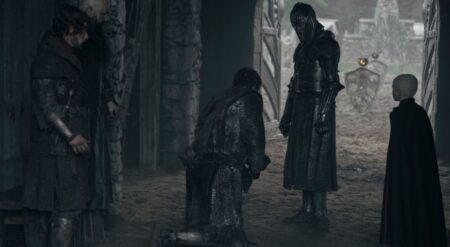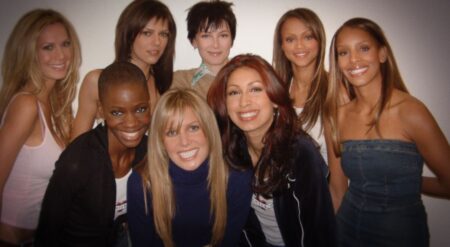This year seems like the return of procedural dramas and all the elements that make network television the long-lasting hits they are. Created by Tim Walsh and Elliot Wolf (son of TV icon Dick Wolf, who also serves as Executive Producer), On Call captures a police procedural drama era that has captivated audiences. The series stars Troian Bellisario, Brandon Larracuente, Eriq La Salle, Rich Ting, Lori Loughlin, Lobo Sebastian, and Grey Acuna.
On Call captures the highs of network television on streaming, something that HBO’s The Pitt is also attempting in the medical drama space. The procedural show hasn’t gone by the wayside on network television. Series like 9-1-1, Brilliant Minds, and Law & Order: SVU, featuring the best ship on TV, Stabler and Benson, have continued to secure network television’s place in pop culture. But streamers began distinguishing their programming as prestige series at a certain point. What series like On Call do is place a focus on the foundations of procedurals and highlight a shift in Prime Video’s focus.
On Call opens with a traffic stop gone wrong. Officer Delgado (Monica Raymund) walks up to a car and doesn’t survive the encounter. What follows is a push to solve the crime and bring the gang, East Barrio, to justice. The series looks at the fallout through the eyes of her mentor, veteran officer Traci Harmon (Troian Bellisario), and her new rookie partner, Alex Diaz (Brandon Larracuente). On Call follows the duo as they patrol the streets of Long Beach, responding to emergency calls while chasing down Officer Delgado’s killer.
My largest issue with On Call is how aggressive the series’ copaganda elements are. While we can discuss whether series like Brooklyn 99 are in the same category as Blue Bloods or Law & Order: SVU, it doesn’t really matter. It’s about the balance between glorifying policing as active participants in the community who actively solve crimes (when the reality is that they don’t) and the more extensive conversations about injustices in departments.
Does the series confront corruption, excessive use of force, and using power to exploit things around them? Does it provide a cathartic experience for the viewer? Or is it just there as PR for your local PD?
On Call (2025) lacks catharsis but attempts complexity.
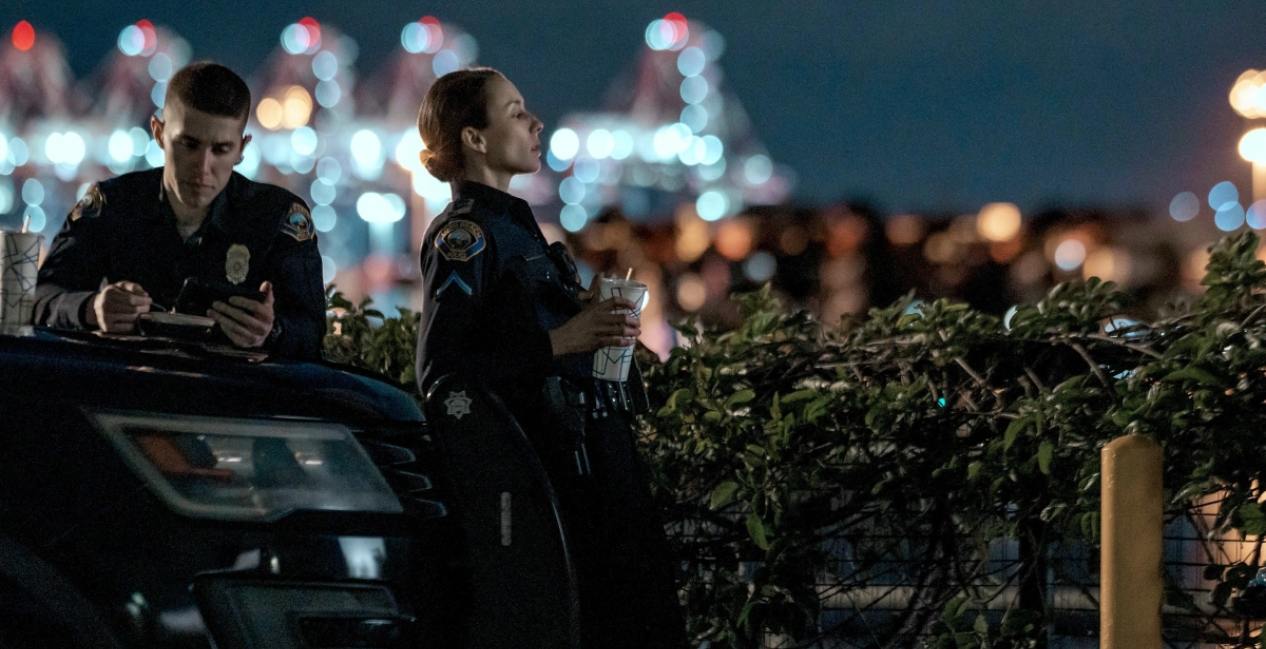
On Call is not as focused on the longevity of policing as Blue Bloods, but it doesn’t have the catharsis that Law & Order: SVU does by watching detectives take down sex offenders. On Call solidly understands its place in the police drama canon, and by focusing on beat cops, it presents audiences with more danger and uncertainty than you get in detective stories.
One Call also makes an effort to capture the complexities of policing without protecting its lead characters from being flawed characters in order to protect the badge. Instead, Diaz and Harmon make mistakes. They have biases. How the two partners navigate that is where things get interesting. While the series doesn’t dig deep into the issue currently affecting the public that police are supposed to protect and serve, it doesn’t sidestep it all like other series.
With gang violence as the primary driver, the series always seems at odds with itself in presenting Latinos in Long Beach as gang members out to kill cops. That leaves “the good ones” who can become cops like Officer Diaz, the only Latino in the primary ensemble, and not many episodes to expand on his roots with his community.
Gang violence is central to On Call. While each episode features a number of responses to different kinds of reports that range from domestic violence to a man who left his hospital high for a 6 for $2 taco deal and a man who cheated on his wife with an Instagram cam boy, the eccentricities of the daily crime falls to the wayside for gangs. In that way, On Call stops being as interesting as its network television counterparts. When all roads lead back to the same California police story, it starts resting on laurels.
Instead, Diaz pulls out his Spanish to talk to Latino suspects and victims, but there is no connection to his larger community beyond that or trying to save his brother from East Barrio and the hit they put on him. The Spanish, though, is often well executed with insults like pocho that call out precisely what Diaz is doing in trying to play good cop with detained Latinos. But in moments where the series tries to represent gangs, it leans on the chronically overused stereotypes that plague the genre. Its depictions fit for the old days of Law & Order, not 2024 Long Beach.
Like other police procedurals, this one doesn’t depart from stereotypes.
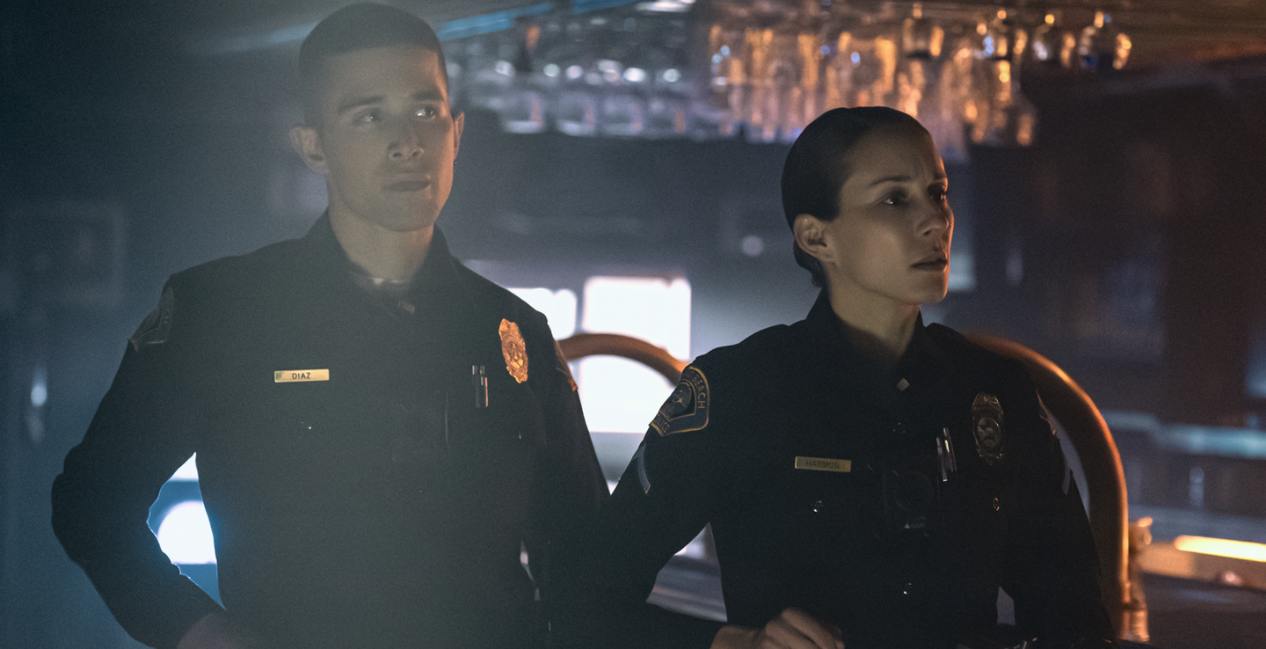
Outside of that, On Call does give Alex Diaz enough moments to shine in his role. His rookie status often comes into conflict with the system and Officer Harmon. At the same time, the experiences we don’t see clearly from his past also inform how he connects with those around him and the situations at hand. He was raised not to trust cops, saw his brother go down the gangbanging road, and yet, he became one. The path he walked could be compelling, but something is missing.
More surprisingly, it’s not something that I don’t trust Wolf and Walsh to get. Rather, the depth needed to turn Diaz into a dynamic second lead could only have come from more time with him. Ultimately, Prime Video, or rather, the streaming format of eight-episode seasons, lets him down in a show that he could have run away with, given the strength of Brandon Larracuente’s acting.
For her part, Troian Bellisario, as Officer Harmon, is stubborn, brash, and definitely not concerned with anything but staying alive. She takes calculated risks but always checks her math, and at the very least, has a head on her shoulders that prioritizes justice over vengeance, even if she has to cry and scream in her car afterward because she desperately wants to let the anger win. Harmon shows that On Call is an attempt to highlight the importance of restraint, but only after she makes her own mistakes.
Harmon is unwavering in her morality but is also deeply vulnerable and scared of the world around her. She’s not scared of the gangs or the danger but rather how her choices impact the people she’s connected to. The inciting tragedy that kicks On Call off as a series is its pervasive story thread. Not just in how the series’ main conflict is between East Barrio and the cops, but rather how Harmon feels guilt and responsibility for not being a better mentor and not being there for the officer who was killed.
On Call doesn’t reinvent the genre but it does thrive in it.
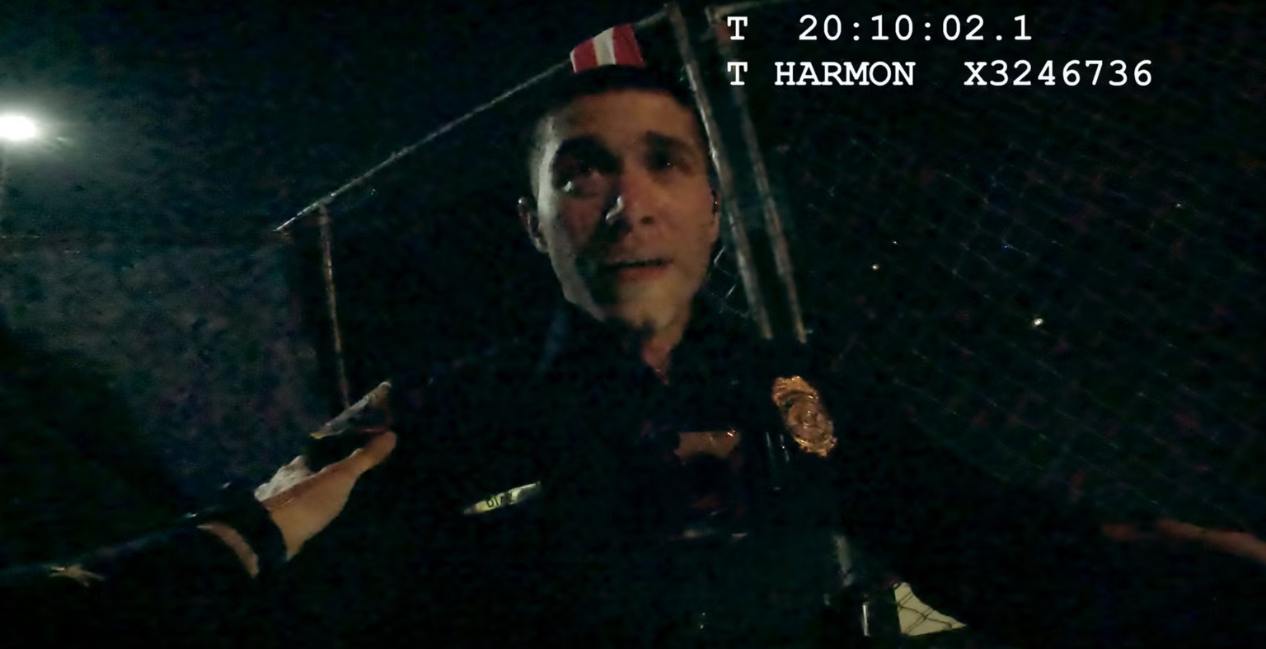
All of that said, the series’ direction clouds many of the character connections that begin to form. On Call utilizes police body cam footage throughout each episode to show how its characters are responding to calls. That said, it also misunderstands what body cam footage has come to mean in a time where all we see are images of cops shooting unarmed people or brutalizing them.
Within the context of a narrative about restraint and policing “the right way,” the intention behind the perspective shifts is clear. It adds a flair to the series that defines its visual style. But it also misses the shorthand that seeing a body cam video has come to mean. The body cam footage is one of those elements that, if you pulled it out, wouldn’t change anything for the worse, but it would help immersion and investment from the audience.
Yet, On Call is something that I can’t stop watching. Like many of Dick Wolf’s other projects, it’s clear that this procedure has the ability to keep you coming back for more. As you can probably tell, I’m not the kindest for copaganda, especially those that center Latinos as criminals. On paper, I should hate On Call. As you can see, there are many ways that I have been critical of it. But I would be wrong to even try to say that On Call isn’t good television made well.
On Call understands the highs of network television and leans hard on the foundational elements that have built procedural dramas into the TV’s bedrock. It doesn’t reinvent its genre, but it does thrive in it. While its length holds it back in places, if Prime Video were to greenlight a 16-episode Season 2, they’d be able to compete with the mainstays on cable. Dick Wolf, and now clearly his son Elliot Wolf, know how to make a cop drama, and I’ll show up to watch them every time.
On Call is streaming now, exclusively on Prime Video.
On Call (2025)
-
Rating - 7.5/107.5/10
TL;DR
On Call understands the highs of network television and leans hard on the foundational elements that have built procedural dramas into the TV’s bedrock. It doesn’t reinvent its genre, but it does thrive in it.

